The #1 Automation & Text Messaging Platform For Small Businesses
The first ever platform built to manage a Business's Follow up, two-way texting, pipeline, scheduling, and so much more.
Built for Agencies, By an Agency.
Your End-To-End Funnel Marketing Solution
Build forms and funnel pages to capture leads, user automated sms, email, phone calls, voicemails, and Facebook Messages to nurture leads through custom pipelines, converse with leads & clients via text, phone, and Facebook Messenger (all in one stream!), and more!
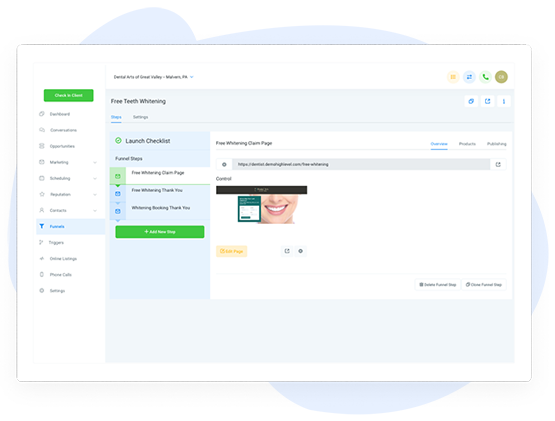
Build Forms & Landing Pages To Capture Leads
Use our drag-and-drop form and funnel builders to create landing pages that convert traffic to leads that get stored in HighLevel.
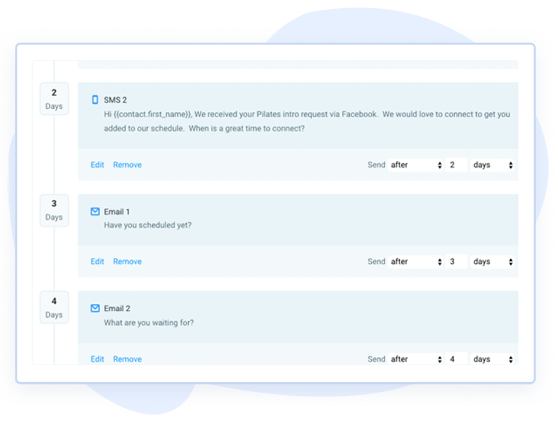
Convert Leads With Robust Automations
Build custom nurture campaigns that send text messages, emails, voicemails, and even Facebook messages to convert leads automatically.
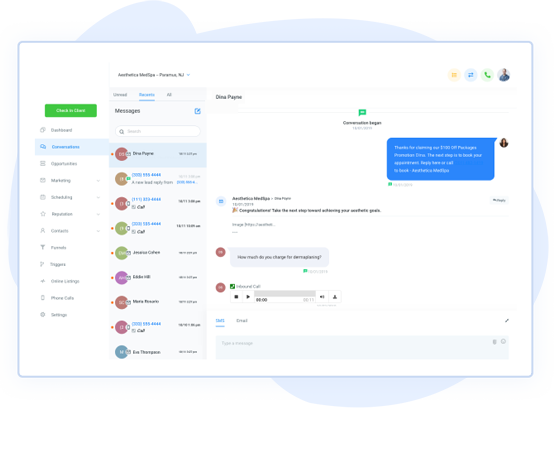
Converse With Leads & Customers In One Place
Keep track of conversations whether they happen via text message, email, phone calls, or Facebook messages. Two-way text included!
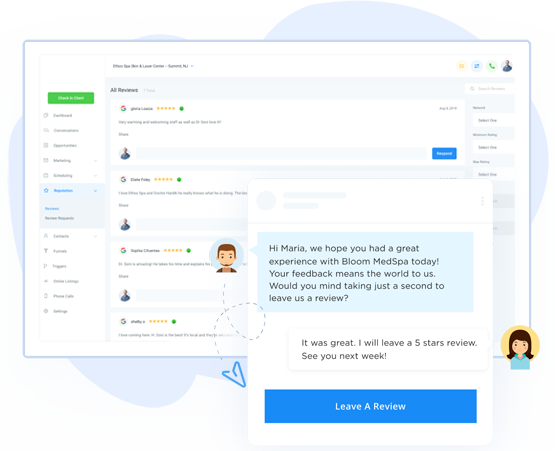
Build & Manage Your Online Reputation
Send review requests via SMS and email with the push of a button. Monitor and reply to new reviews right within the dashboard.
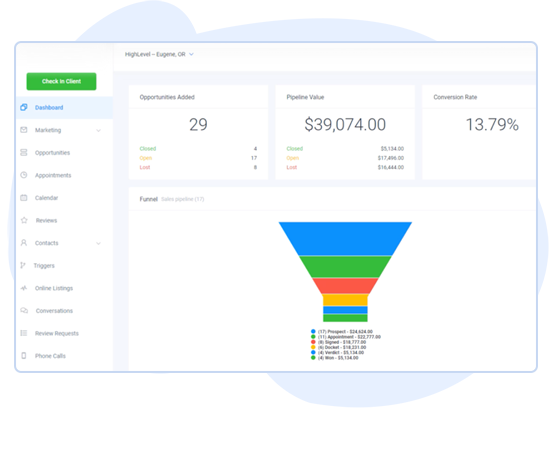
Complete Advanced Analytics Dashboard
The ability to track the ROI and Leads in a pipeline has become even easier through our advanced Dashboard. Track stats such as appointment rates, campaign effectiveness, and even response rates!
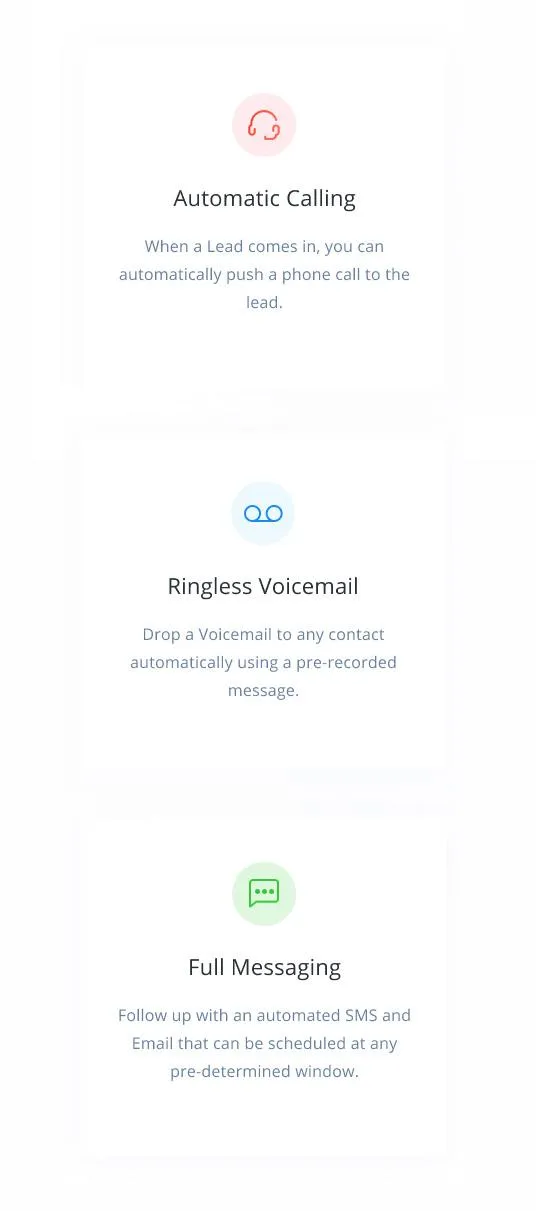
Blogs
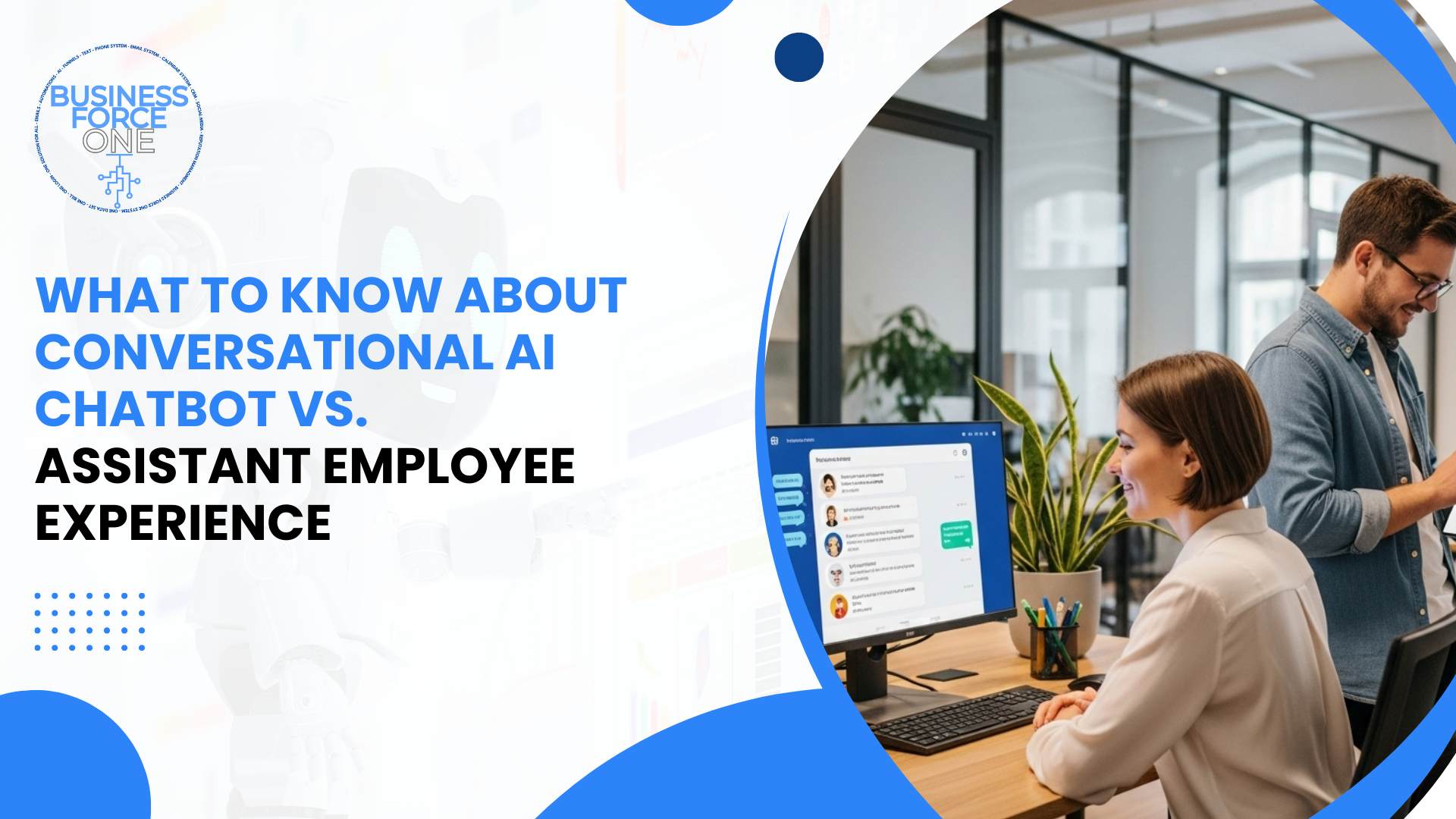
AI Chatbot vs. Assistant Employees | Business Force One
Employees today face constant pressure to handle multiple tasks while keeping customer satisfaction high. Many struggle to respond to queries quickly, leading to mistakes, delays, and stress. These challenges reduce productivity and can create frustration among staff and clients alike. Companies often try to fix this with training or more staff, but the problem persists because manual processes take too much time. A conversational AI chatbot vs. assistant employees can provide a real solution.
By introducing voice AI agents and smart AI assistants, businesses can automate routine tasks, respond instantly to customer requests, and streamline internal communication. This boosts productivity and improves both employee morale and client satisfaction.
What Is a Conversational AI Chatbot and How Does It Work?
A conversational AI chatbot is a software program designed to interact with people in a natural way. Unlike traditional chatbots, these use artificial intelligence to understand questions, process requests, and respond accurately. They can handle customer service inquiries, schedule appointments, and even provide personalized recommendations.
For example, a retail company can use a chatbot to answer common questions about orders, track shipments, or suggest products based on previous purchases. Chatbots rely on machine learning to improve over time, meaning their responses become more accurate and helpful with continued use. Businesses benefit from quicker response times, lower support costs, and happier customers.
Why Should Businesses Consider AI Voice Agents for Employees?
AI voice agents are transforming how employees manage tasks and interact with both colleagues and clients. These agents use speech recognition and natural language processing to perform actions, answer questions, and provide real-time assistance. By introducing them into daily workflows, companies can significantly reduce workload stress and improve operational efficiency. Ultimately, the choice between a conversational AI chatbot vs. assistant employees doesn’t have to be an either-or situation.
Improving Response Time and Efficiency
Voice AI agents can respond to queries instantly, eliminating wait times for employees and customers. For example, a support agent using a voice assistant can quickly retrieve customer data without opening multiple systems. According to a 2025 report by Gartner, businesses using AI voice agents reduced response times by up to 40%. This allows employees to focus on more complex tasks while routine inquiries are handled automatically.
Reducing Workload and Repetitive Tasks
Many employees spend hours on repetitive work such as scheduling meetings, updating databases, or sending follow-up emails. AI voice agents can perform these tasks automatically, freeing staff to focus on strategic work. Companies like Salesforce have integrated AI assistants to reduce repetitive tasks, leading to higher job satisfaction and lower burnout rates among employees.
Enhancing Customer Service Quality
AI voice agents provide consistent, accurate, and polite responses, improving overall customer experience. For example, banks using AI assistants for customer queries have reported a 25% increase in customer satisfaction in 2025. Employees no longer have to repeat answers or deal with frustrated clients, creating a smoother service process.
Supporting Remote and Hybrid Teams
With more companies adopting hybrid work models, voice AI agents help employees stay connected and organized regardless of location. Agents can schedule meetings, remind staff of deadlines, and even provide quick training tips. Tools like Google’s AI Assistant now support remote collaboration, ensuring teams remain productive without constant supervision.
How Can AI Assistants Transform Employee Experience?
Conversational AI chatbot vs. assistant employees can change how employees approach their daily work. These tools help staff focus on meaningful tasks instead of repetitive chores. For example, instead of manually updating spreadsheets or checking calendars, AI assistants can do it automatically.
This saves time and reduces stress, creating a more positive work environment. Employees also receive instant support when they have questions, helping them make faster and more confident decisions.
Companies using AI assistants report higher engagement and better collaboration among teams. According to a 2025 report by McKinsey, businesses that integrated AI assistants noticed a 30% increase in employee efficiency. By streamlining routine tasks and supporting decision-making, AI assistants improve job satisfaction and overall employee experience.
What Are the Key Capabilities of AI Assistants in the Workplace?
AI assistants offer a variety of features that help employees stay organized and productive. Here’s a closer look at their main capabilities:
Scheduling and Calendar Management
AI assistants can schedule meetings, set reminders, and manage calendars efficiently. For instance, an employee can ask the assistant to find available time slots for a team meeting, and it will check everyone’s schedules. This eliminates double bookings and reduces the back-and-forth emails often needed to organize meetings. It keeps teams on track and ensures deadlines are not missed.
Real-Time Data Insights and Reporting
AI assistants can quickly analyze large amounts of data and provide actionable insights. For example, a sales representative can ask for daily or weekly performance reports without spending hours compiling numbers. According to a 2025 study by Deloitte, teams using AI for data insights increased productivity by 20%. These tools help employees make informed decisions faster, which benefits both internal teams and customers.
Seamless Communication Across Platforms
Modern workplaces use multiple communication tools like email, chat apps, and video calls. AI assistants can integrate with these platforms to provide updates, send messages, and ensure nothing is missed. For example, an assistant can notify a team about an urgent client request from Slack while also updating the CRM. This centralizes communication, making collaboration smoother and reducing errors caused by missed information.
Personalized Task Automation
AI assistants can adapt to an employee’s work style and automate repetitive tasks. For instance, a marketing employee can ask the assistant to draft email campaigns or prepare content reminders. Over time, the assistant learns preferences, making suggestions that fit the workflow. This personalization improves efficiency and reduces the mental load on staff, allowing them to focus on creative and high-value work.
Which Is Better: Conversational Chatbots or Voice AI Agents for Customer Service?
Choosing between conversational chatbots and voice AI agents depends on the needs of the business and its employees. Chatbots work well for text-based interactions, such as live chat support or messaging apps. They can handle multiple inquiries simultaneously and provide instant responses, which reduces wait times for customers.
On the other hand, voice AI agents are ideal when verbal interaction is essential, like in call centers or phone-based customer support. They understand natural speech, answer queries in real-time, and perform tasks without manual input.
Businesses may find that a combination of both delivers the best results, ensuring seamless customer service while supporting employee efficiency. For instance, companies using chatbots for basic queries and voice AI agents for complex calls reported a 35% faster resolution rate in 2025.
How to Choose the Best AI Voice Agent for Your Team

Selecting the right AI voice agent ensures your employees get the most value from automation. Here are key considerations:
Evaluating Integration Capabilities
A good AI voice agent should work seamlessly with the tools your team already uses. For instance, it should integrate with CRM systems, messaging apps, and calendar tools. This reduces friction and ensures employees don’t need to switch between multiple platforms. According to 2025 research by Forrester, companies that adopted fully integrated AI tools saw a 25% improvement in task completion speed.
Considering Customization Options
Every team has unique workflows. Choose an AI voice agent that allows customization, such as personalized responses, task assignments, and reporting formats. For example, a support team might require automated call routing, while a marketing team may prioritize campaign reminders. Customization ensures the AI supports your specific needs effectively.
Comparing Pricing and Scalability
AI tools should fit your budget and grow with your business. Some AI voice agents charge per user, while others offer enterprise plans. Scalability is crucial if your team expands. Companies like HubSpot now offer modular AI solutions that allow businesses to pay only for the features they need, keeping costs manageable.
Assessing Customer Support Features
Reliable customer support from the AI provider is essential. If issues arise, quick assistance ensures minimal disruption. For example, vendors offering 24/7 support and detailed onboarding help teams adopt the AI smoothly. This reduces downtime and improves overall employee experience.
What Future Trends Will Shape AI in Employee Experience?
AI adoption in the workplace continues to evolve, with several trends set to shape employee experience. First, more advanced natural language processing will allow AI to understand complex queries better, improving support quality. Second, hybrid work models will push AI to assist remote employees with real-time collaboration and task management.
Third, AI analytics will provide predictive insights, helping teams anticipate issues before they occur. According to a 2025 PwC study, 60% of companies plan to expand AI tools for internal workflows, emphasizing employee experience. These trends indicate that AI will not just assist but actively enhance productivity and satisfaction.
The Bottom Line
Conversational AI chatbots vs. assistant employees: both offer unique advantages for improving employee experience. While chatbots excel in text-based automation, voice AI agents support real-time verbal interactions and complex task management. By understanding their capabilities, integrating the right tools, and choosing solutions that match team needs, businesses can boost productivity, reduce stress, and improve customer service. AI is no longer just a support tool; it’s an essential partner in creating efficient and satisfied teams.
Learn how to select the best AI voice agent for your team today and transform daily workflows into smoother, faster, and more productive experiences. Visit Business Force One now.
FAQs
1. What is the difference between a conversational AI chatbot and an AI assistant?
A conversational AI chatbot primarily handles text-based interactions, while an AI assistant can manage tasks, schedule events, and support verbal communication.
2. How can AI voice agents improve employee productivity?
AI voice agents automate repetitive tasks, provide instant information, and manage workflows, reducing manual work and saving time.
3. Are AI assistants suitable for remote or hybrid teams?
Yes. AI assistants help remote employees stay organized, communicate efficiently, and track tasks across multiple platforms.
4. What features should I look for in the best AI voice agent?
Key features include integration with existing tools, customization options, scalability, and reliable customer support.
5. Will AI replace employees in the future?
AI is designed to assist, not replace, employees. It handles repetitive tasks so staff can focus on higher-value, creative, and strategic work.

Christina Nelson
"As a business owner, it is always important to know the numbers and statistics in your company. To know your best clients, programs, what is working or not working. Many of us spend years and thousands of dollars on software that we think will help, and spend too much money, time and effort to implement. And if we can’t understand it all, we have to invest/pay another person to understand and implement it all.
As a subscriber to multiple software platforms to keep our businesses at the forefront of the industry, I can truly share this Business Force One software developed by High Level, makes my job as the CEO a simpler one. Meaning I can see new clients coming in the door from multiple resources, our company follow up, conversions, current client’s information, sales, and special offers in one place."

"As a business owner, it is always important to know the numbers and statistics in your company. To know your best clients, programs, what is working or not working. Many of us spend years and thousands of dollars on software that we think will help, and spend too much money, time and effort to implement. And if we can’t understand it all, we have to invest/pay another person to understand and implement it all.
As a subscriber to multiple software platforms to keep our businesses at the forefront of the industry, I can truly share this software developed by High Level, makes my job as the CEO a simpler one. Meaning I can see new clients coming in the door from multiple resources, our company follow up, conversions, current client’s information, sales, and special offers in one place."
Christina Nelson



